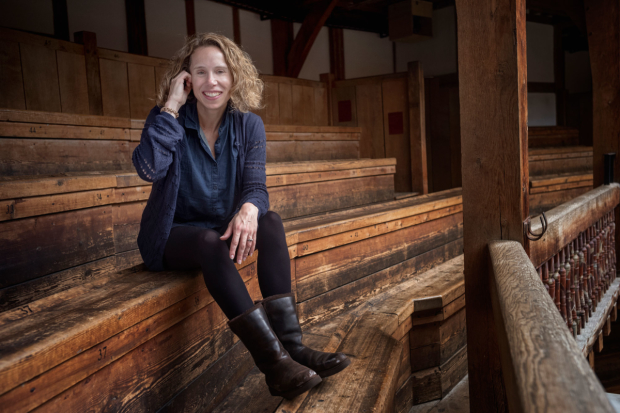Michelle Terry issues further statement around her casting as Richard III at Shakespeare’s Globe
The production was announced as part of the venue’s summer season

Following a number of posts on social media and across internet platforms, Shakespeare’s Globe has released a further statement clarifying the decision to cast artistic director Michelle Terry as Richard III in a new revival of Shakespeare’s history play.
Examination of the deceased monarch’s skeleton has confirmed what was widely disseminated by literature from the period – that Richard experienced scoliosis (a sideways curvature of the spine) during his lifetime. In Shakespeare’s play, Richard is described as “deformed” and “unfinish’d”. As such, a number of comments have highlighted the validity of the choice for an able-bodied performer to tackle the show. A number of recent productions have all involved the infamous monarch being played by a disabled performer, including an RSC revival in 2022.
Within the new 1000-word statement, Terry stated: “I want to acknowledge any pain or harm that has been caused by the decision for me to play Richard III and I hope to provide some context as to how that decision has been made. All programming and casting decisions across all seasons are made as consciously and rigorously as they possibly can be, and always in dialogue with members of our many communities.”
Later in the statement, Terry confirmed: “I will not alter my physicality to explore it. I will not be playing Richard with a visible or physical impairment, and we will frame this production in such a way as to make it very clear the lens through which this interpretation is being explored.
“This production does not equal a permanent revision of the play or the eternal erasure of the character’s impairment, or a rewriting of a historical figure. I acknowledge that for many, Richard III is an iconic disabled figure. I understand that this feels like a missed opportunity for a disabled artist to play a disabled character on a major UK stage, but it will come around again.”
She continues by stressing: “Our interpretation does not mean that we have forgotten disability”, adding, “the whole play is saturated with ableism that we will address and unpack throughout the process. This production in no way wants to undermine the need for disabled characters, disabled stories to be told or to diminish the ambition for greater representation in our industry. That is precisely why we have programmed and will continue to programme as many ways as possible for these stories to be told and conversations to be held.”
Concluding her statement, Terry reflected on the current arts landscape for disabled creatives: “We are aware that many of our exceptionally talented recent, current, and upcoming disabled artists have been overlooked in the public conversation. This moment, and the work that we all have to do, must not mean the ostracisation, erasure or invisibility of all the amazing artists that have been and continue to work tirelessly to make progress possible.”
The production has been announced as part of the venue’s summer season, which opens late this spring at the Thameside location.
















